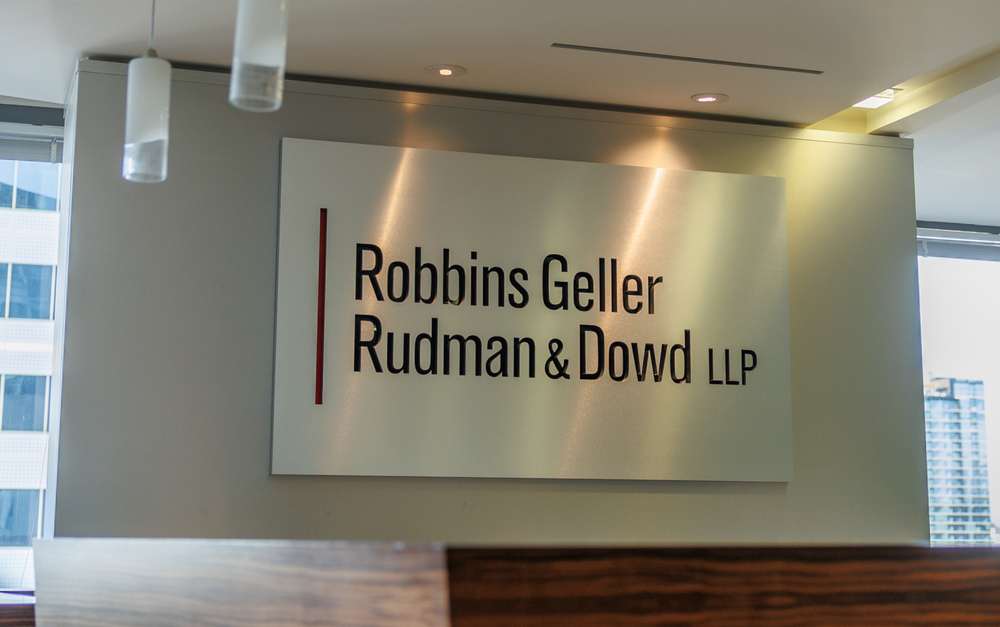Daily Journal’s 2024 CLAY Awards: Envision Healthcare settles for $175 million over surprise billing

By Don DeBenedictis
Daily Journal
Article is reprinted with permission of the Daily Journal.
Before Envision Healthcare Corp. filed for bankruptcy a little over a year ago, it made a substantial portion of its profits by hitting hospital patients with surprise “balance” bills for out-of-network emergency room services performed by the many emergency medicine practices it had acquired, according to securities lawyers at Robbins Geller Rudman & Dowd.
“What they do, it’s a setup,” said Darren Robbins. Envision and other companies like it would buy emergency room practices and then keep them or take them out of many insurance networks. As a result patients “labor under the misperception that [they are] in network,” he said.
Then, added his partner Jessica Shinnefield, the company would bill the patient’s insurance company for the services at a high rate, of which the insurer likely would agree to only pay a portion. “And then Envision would bill the patient directly for that missing [amount].”
“That’s the engine of growth,” said Spencer Burkholz, another partner. In the early 2010s, Envision was increasing its revenues by double digits, he said. But then, consumers began complaining. Florida, among other states, adopted legislation to curtail surprise billing and out-of-network practices. By spring 2016, analysts start asking questions of the company’s management.
The company responded that only about 20% of its revenues came from those practices.
In fact, “it was more like 75%,” Shinnefield said. “The market was very unaware that a big part of its revenue was generated from these practices that were unsustainable.”
And then, in 2017, “everything started to fall apart,” Burkholz said. The New York Times reported on a study from Yale exposing surprise billing. Congress began to investigate. The company’s share price began to slide. And Robbins Geller filed suit on behalf of two labor union pension trust funds alleging securities fraud. In re Envision Healthcare Corp. Sec. Litig., 3:17-cv-01112 (M.D. Tenn., filed Aug. 4, 2017).
Soon after the suit was filed, the company reported an earnings target missed and the end of rapid growth. “The stock goes down 40%,” Burkholz said. “So, a $75 stock is now basically $25 by the end of the class period in the spring of 2018.”
In 2019, Congress enacted the No Surprises Act to stop surprise billing nationwide. In 2020, the pandemic began. And in May 2023, Envision filed for bankruptcy.
Then in September, the plaintiffs’ attorneys announced they had reached a $177.5 million settlement with Envision. “This recovery . . . in connection with a bankrupt company is pretty extraordinary,” Robbins said. In fact, it is the second largest securities settlement ever in the Middle District of Tennessee, which sees a high percentage of such cases involving medical companies, he said.
At the time, the attorneys were about six months from trial. They had gone through 400,000 documents and conducted 46 depositions, Shinnefield said.
Robbins credits the unusual success to his and his partners’ experience and trial-readiness in investor-rights litigation. “We have a small group of trial teams, which are kind of like Navy Seals,” he said. “They get dropped into these cases, and they prepare for battle.”
“It’s the ability to field that trial team that offers a viable threat at trial,” he said. “It takes a long time, but the ability to be ready to be out on the field to try the case is what makes the difference. And that’s what made the difference here.”
Reprinted with permission from the Daily Journal. ©Daily Journal Corporation. All rights reserved. Reprinted by ReprintPros 949-702-5390.
To view the original article, click here.
Read More Awards
- November 24, 2025
- July 21, 2025
- July 2, 2025
- June 19, 2025
- March 24, 2025